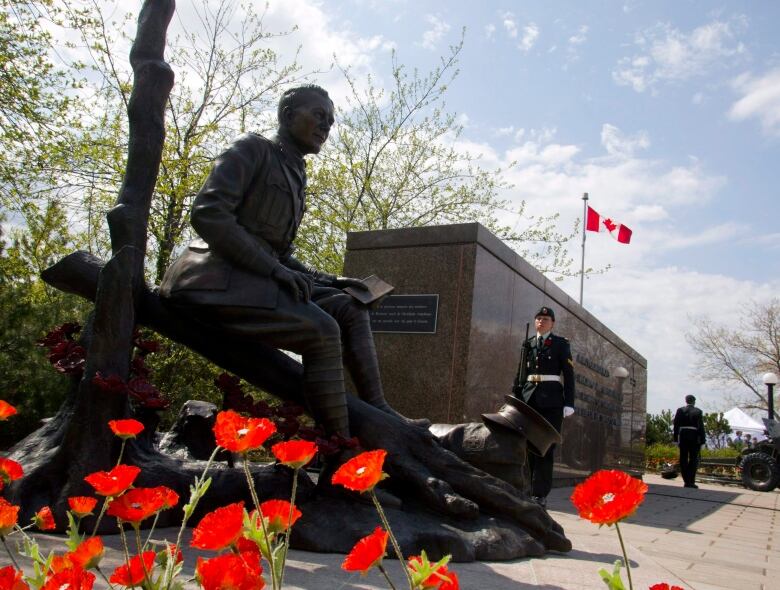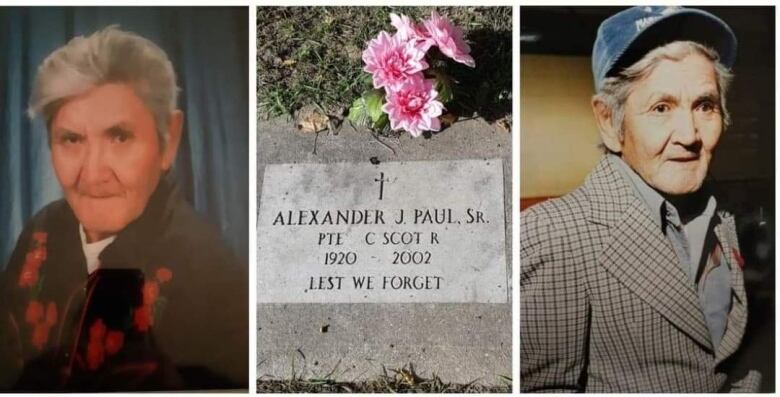Lheidli T'enneh elder translates In Flanders Fields into local Indigenous dialect for Remembrance Day
Edie Frederick from Prince George, B.C., honours First Nations veterans with her recitation of the iconic poem
British Columbianswho have heardIn Flanders Fieldsrecited every Remembrance Day can now hear it read in a B.C.Indigenous languagethanks tothe work of Lheidli T'enneh elder Edie Frederick.
The Prince George teacher, along withher motherJosie Paul, have translated the iconic 1915 poem by John McCraeinto thelocalLheidli dialect of the Dakelh language and, to mark Nov. 11, Frederick has released a video of herself reciting it.
Although Dakelh speakers are few there are fewer than 1,300according to the 2016 censusit is the ancestral tongue of several First Nations in and around the central Interior of the province.
"It's more powerful when we say it in our language," Frederick toldCBC's Daybreak North Tuesday.

Fredericksaidthe translation from English is not verbatim, and sometimes she had to find other ways of saying something McCrae had, but that she feels the poem carries more power and emotion because of it.
By reciting those powerful words, Frederick says, she is honouring the many Indigenous veterans who entered into service for Canada.
According to the federal government, at least 4,000 First Nations soldiers fought in the First World War and 3,000 in the Second World War.

Nov. 8 markedNational Indigenous Veterans Day, a day to recognize First Nations, Mtis and Inuit contributions to military service.
"All the native veterans deserve to be remembered for doing what they did," said Frederick. "I just thought that we should honour them.We shouldn't forget about them."
For Frederick, the subject is personal.
Her own father,Alexander J. Paul Sr., served in the Second World War and, while he never shared stories from that time with any of his own children, she said he did later open up to his grandson about his time at war.

"To me that's an honour ... that he passed these stories on to my son," she said.
For Frederick,Nov. 11 is a chance to "remember that we are all Canadians" and to feel optimistic about the future.
"We see little bits or reconciliation happening here and there and Ijust have hope for my great-grandchildren and my grandchildren, andI want to do my part and hold up that torch like it says inFlanders field."
To hear the complete interview with Edie Frederick on CBC's Daybreak North, tap the audio link below:
With files from Daybreak North













_(720p).jpg)


 OFFICIAL HD MUSIC VIDEO.jpg)
.jpg)



























































































